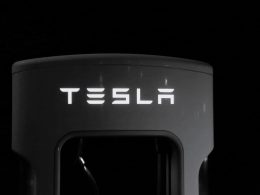Product recalls used to spell disaster for companies, bringing chaos, massive costs, and damaged reputations. The mere mention of a safety recall would send corporate executives scrambling to minimize fallout. However, artificial intelligence is transforming this landscape entirely, turning what was once a company’s worst nightmare into a manageable, efficient process. Pete Gillett is at the forefront of this transformation, with experience from exploding fire extinguishers to the Great Horsemeat Scandal!
From Corporate Cover-Ups to Transparent Solutions
The approach to product recalls has shifted dramatically over recent years. Pete explains how companies previously handled these situations: “Before COVID, having a product recall was something that companies tried to shy away from because of the potential reputational damage, let alone the huge cost.” The infamous Volkswagen Dieselgate scandal exemplifies this old mentality, where executives attempted to destroy evidence rather than address the problem directly. Companies now recognize their responsibility to customers and understand that quick, transparent action minimizes damage. Pete notes this change: “Refreshingly, companies now know that putting their hands in the air, saying we need to do a safety recall, that’s nothing to be afraid of. We’ve got a social duty to look after our customers.” Major brands have demonstrated this new approach, quickly announcing recalls and providing clear instructions to consumers.
Using AI to Improve Reach
AI serves as the catalyst enabling companies to execute recalls efficiently and reach more affected customers. Traditional recall methods often struggled to identify and contact customers, particularly when products were sold through dealer networks or retail chains. Pete describes the solution: “Having systems where someone, a consumer, can scan a QR code at the dealership, on a letter that’s gone straight to them, on a poster in the supermarket if it’s a food recall, and then you have an AI-driven application that goes through and asks you various questions to check whether your product is affected.”
This technology asks pertinent questions about model numbers, purchase dates, and other relevant details to determine whether specific products are affected. The system instantly tells customers whether their product needs attention or if they’re safe to continue using it. Results speak for themselves – while traditional recalls might reach only 20-25% of affected customers, AI-powered systems are now achieving over 90% reach rates.
Streamlining Customer Service
Call centers represent another area where AI dramatically improves recall processes. Complex product lines with intricate serial numbers, multiple brand names, and various purchase channels previously required extensive human intervention. Pete explains the new approach: “An AI agent can take your call rather than a human being and, depending on the answers to your questions, very quickly ascertain whether you’re part of that recall.” The system automatically sends customers links via WhatsApp or SMS with specific instructions for their situation. All information flows back into central databases without human oversight, creating seamless tracking and management. This automation allows companies to handle large volumes of inquiries while providing accurate, personalized responses to each customer.
Recall Ready – Preparing for the Inevitable
Pete developed Recall Ready as a proactive new solution to a problem most companies only face when it’s too late. “Companies can come to us, we take them through an audit to see how they’re handling recalls at the moment, and then set up everything in advance,” he explains. The system stays in place at relatively low cost, maintained and updated in the background until it’s needed. When a recall hits, companies can respond in days instead of months. Everything is ready to go, from toll-free numbers to AI-powered agents and communication protocols.
This shift from reactive chaos to quiet confidence is what Pete believes will define the future of recall management.
But he doesn’t stop there. Pete sees AI playing a bigger role in safety education, not just crisis response. One example that stood out to him involved lithium-ion batteries in e-scooters. “The risk of taking an e-scooter with lithium-ion batteries back to your apartment, they can combust and catch fire just as easily as an old-fashioned motorbike, which you wouldn’t dream of bringing indoors” he says. A simple phone call with an AI agent could offer safety tips that can save lives. For companies with complex products or safety concerns, having AI available to answer questions at any time isn’t just a nice-to-have. It’s part of a broader shift in responsibility, from managing disasters to actively preventing them.
Connect with Pete Gillett on LinkedIn to learn how AI can safeguard both your customers and your brand.











